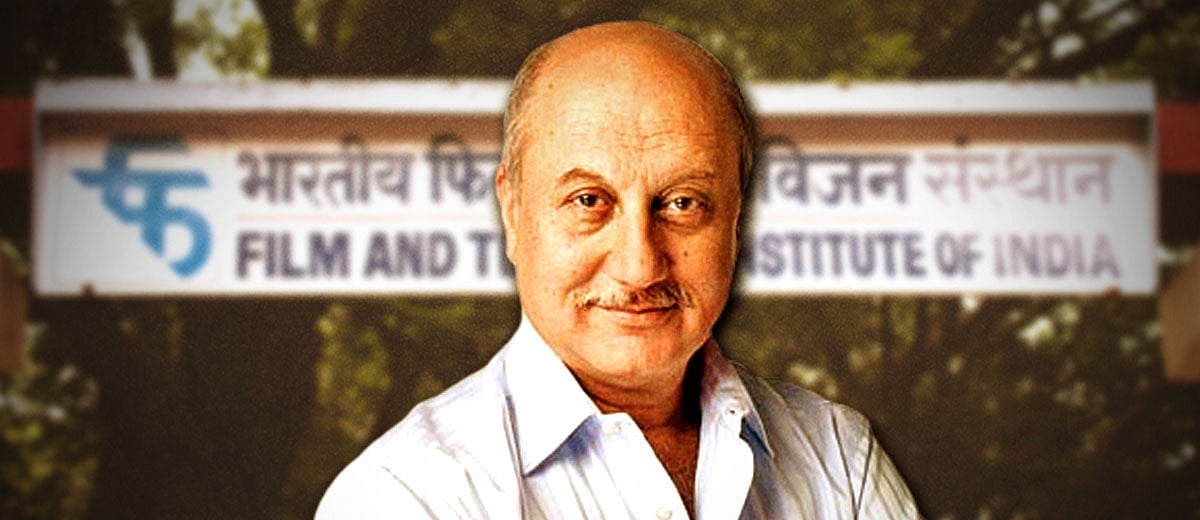FTII stands ground on professor’s suspension over Modi posts despite HC directions
Indraneel Bhattacharya has taught in India, UK and Sri Lanka. The court said his suspension was prima facie illegal.
Despite high court directions in March, the Film and Television Institute of India is yet to order an inquiry or reconsider the suspension of a professor who was suspended in 2019 for violating rules, by allegedly criticising the prime minister and the government on social media.
On March 30, the Bombay High Court had observed that the suspension of screen studies professor Indraneel Bhattacharya was prima facie illegal as it came through then FTII director Bhupendra Kainthola without the approval of then chairman BP Singh.
The court asked the institute to conduct an inquiry and reconsider the suspension, seeking a report by April 20. However, instead of submitting a report about any fresh inquiry, the FTII filed an affidavit on April 18 asserting that the director’s note was accepted by the chairman and an inquiry report, prepared by a panel under the union information and broadcasting ministry, had earlier found the professor guilty of misconduct in 2019. Notably, the same arguments had been turned down by the court when it issued directions seeking an inquiry while calling the suspension illegal.
The court had also asked the institute to seek Bhattacharya’s version during the inquiry but he was never approached by the panel.
Bhattarcharya had argued that the suspension came after he submitted a complaint to the chief vigilance commissioner about the functioning of the institute.
The professor’s lawyers were handed over the affidavit on August 12. The court will hear the matter next on October 11.
In June, more than 150 filmmakers and film academicians from India, the UK, US and Canada wrote to incumbent FTII chairman Shekhar Kapur expressing “deep concern over the continued suspension” based on an “unsubstantiated charge” despite a high court direction. Their letter mentioned that Bhattacharya has been denied access to the library and the institute’s film archives and studios, hampering his academic growth despite a PhD in cinema studies and a long experience in teaching at film schools and universities in India, UK and Sri Lanka. They said the incident had been red flagged by New York-based scholars at Risk Foundation and included in their annual report on academic freedom across the world.
Admitting Bhattacharya’s petition against his suspension in September 2019, a bench of justices SC Dharmadhikari and GS Patel had noted that it raised “important questions of interpretation of articles 19 (1) (a) and 19 (2) of the Constitution”. “Facebook communication is a private document to which nobody has access, other than the one permitted within the arrangement. The same has been accessed and based on that, the show cause notices have been issued,” the court had noted.
The professor was served a showcause notice, on June 17, 2019, stating that he had violated the CCS conduct rules, 1964, which prohibit a government servant from criticising the government and its policies. He was suspended next month by Kainthola, who is now the director general of Press Information Bureau (east zone) in Kolkata.
The notice alleged that Bhattacharya criticised PM Narendra Modi, former finance minister Arun Jaitley, the ruling BJP and the government’s policies through his Facebook posts between February and March 2019.
Kapur did not respond to repeated requests for comment by Newslaundry. This report shall be updated if we receive a response.
Bhattacharya and his lawyers were not available for comment.
“FTII has acted upon the order and has submitted its report…since the matter is subjudice, more details cannot be disclosed at this moment,” said FTII registrar Sayyid Rabeehashmi.
The letter to Kapur by more than 150 academicians in June called on the institute to protect the freedom of expression and academic freedom “by members of the higher education community”. “As we understand, the bench found the suspension prima facie illegal and had sought that you as the chairman of the institute to conduct an inquiry on this egregious suspension.”
“We see you as an artist and a freethinker and in a position to appreciate that what is happening…is an attack on academic freedom and are confident you will act in good faith to right a wrong, unfettered by organisational practices.”
Gayatri Chattarjee, an eminent film scholar and winner of the president’s medal for best book, was among those who wrote to Kapur. “They are not revoking the suspension purposely because they believe that by revoking it they will be admitting their mistake,” she said.
“All the cases against professor Bhattacharya were made up but despite the court’s direction, Shekhar Kapur is not considering revoking the suspension. Any person who joins a new organisation wants to clear up things. I am wondering why he is not clearing up the mess.”
Matthias Kispert, a London-based artist who teaches at the school of arts at the University of Westminster, said, “The continuing suspension…raises serious concerns about academic freedom and freedom of speech more generally. The ability of scholars to participate in public debate without fear of reprisals is central to a democratic public sphere. I call on the authorities responsible for this suspension to urgently review professor Bhattacharya’s case and lift the suspension.”
 Appointing Anupam Kher #FTII chairman is a masterstroke
Appointing Anupam Kher #FTII chairman is a masterstrokeNL Digest
A weekly guide to the best of our stories from our editors and reporters. Note: Skip if you're a subscriber. All subscribers get a weekly, subscriber-only newsletter by default.
